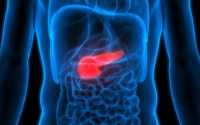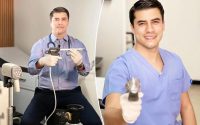FDA approves RSV drug to combat infection that kills babies
The Food and Drug Administration on Monday approved a new drug, Beyfortus (nirsevimab), to protect young children from the deadly infection known as respiratory syncytial virus (RSV).
Worldwide, RSV is the second-leading cause of death during the first year of a newborn’s life, second only to malaria, according to Nature Journal.
Infants six months and younger have an even higher risk of becoming extremely ill. Globally, about 120,000 babies die from RSV every year.
“RSV can cause serious disease in infants and some children and results in a large number of emergency department and physician office visits each year,” Dr. John Farley of the FDA said in a statement. “Today’s approval addresses the great need for products to help reduce the impact of RSV disease on children, families and the health care system.”
The FDA approved the monoclonal antibody, developed by Sanofi and AstraZeneca, for children one year old and younger, making it the first RSV immunization for that age group.
The FDA approval also allows a second injection for children up to 24 months old who are still vulnerable to the virus in their second year.

Beyfortus can be given as a single injection to infants before RSV season, which peaks in fall and winter. Possible side effects for the drug include rash and reactions at the injection site.
According to the Centers of Disease Control and Prevention, an estimated 58,000 to 80,000 children younger than 5 years old are hospitalized due to RSV. One to two of every 100 children younger than 6 months with RSV may need to be hospitalized.
Though RSV is most common in babies and toddlers, respiratory disease can affect people of all ages. In adults and healthy children, symptoms of RSV are similar to that of a common cold, according to the Mayo Clinic.
However, some infants — especially with their first infection -— “develop lower respiratory tract disease such as pneumonia and bronchiolitis (swelling of the small airway passages in the lungs), that often leads to an emergency department or physician office visit,” the FDA said.
Infected people typically show symptoms within four to six weeks, and symptoms usually include runny nose, decreased appetite, coughing, sneezing, fever and wheezing.


People infected with the virus are usually contagious for three to eight days. The virus is transmitted from close person-to-person contact with someone infected.
Babies and people with weakened immune systems, such as older adults and other vulnerable populations, can spread RSV for up to four weeks.
Beyfortus is expected to roll out in the US in the fall — before the season starts this year. CDC advisers will need to sign off on the drug before it’s made widely available to the public.
Another shot, palivizumab, is already on the market, though it’s only for children with high medical risk and is administered monthly.
In May, the FDA approved the world’s first RSV vaccine, Arexvy, a single-dose shot that aims to prevent lower respiratory tract disease caused by RSV in people 60 years and older.
It was reported in February that Pfizer has developed RSVpreF, a vaccine to prevent severe cases of RSV, and the FDA was expediting its review approval process.
That vaccine is a single dose administered to pregnant women in the late second or third trimester of their pregnancy. If approved, it would be the first vaccine given to expectant mothers to protect against the disease in infants from birth through their first six months.


